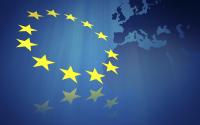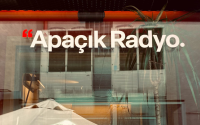
An EU summit is due to decide whether Turkey can open negotiations to become a member of the European club. Click on the map above to find out where some of the key EU players stand on Turkey's bid, and the state of the debate in some of the smaller, more sceptical states.
The UK - which has consistently favoured a wider as opposed to more deeply integrated EU - is Turkey's biggest EU champion. Prime Minister Tony Blair has thrown his weight behind an early start to accession talks. This is also in line with the wishes of Washington, which strongly backs Turkish membership.
The Dutch have started to harbour doubts about the desirability of multi-culturalism, and the entrance of Muslim Turkey into the club has exacerbated some of these fears. Before he left his post, Dutch EU Commissioner Frits Bolkestein warned of the "Islamisation" of Europe if Turkey joined, conjuring up imagery from the 1683 siege of Vienna by Ottoman Turks. But the Dutch are currently in charge of the EU's rotating presidency, and the country's Prime Minister Jan Peter Balkenende has rejected suggestions that the rules should be changed to offer Turkey a status beneath full membership as France and some sceptical countries have mooted. "I think we need fair play," he said. "We shouldn't suddenly add new criteria. We should be fair to Turkey."
German Chancellor Gerhard Schroeder is keen on Turkey's accession, and has been pushing for the start of negotiations. There is, however, opposition to the move at home, amid fears about a fresh wave of immigrants and the eroding of Christian values in Europe. The leader of the opposition CDU party, Angela Merkel, favours a "privileged partnership" with Turkey as an alternative to membership, but this call is thought unlikely to have much of an impact at this stage.
President Jacques Chirac backs negotiations with Turkey but, keen that France's forthcoming referendum on the EU constitution does not turn into a vote on Turkey joining the club, has already promised a separate plebiscite on its membership. To be on the safe side, Paris also wants accession negotiations delayed until after the French have voted on the constitution, to be sure that the two issues are not connected. France wants Turkey to acknowledge the mass killing of Armenians from 1915 as a "tragedy" before it starts EU negotiations. It also wants the EU's declaration on the launch of talks to make clear that Turkey may ultimately have to settle for less than full membership.
Austria, sceptical about Turkey joining, has also been pressing for an alternative status to membership. Like others, it has fears about the impact on the labour market and the culture of Europe, but it is thought unlikely to veto the start of membership negotiations.
Prime Minister Silvio Berlusconi has said that he wants talks with Turkey to begin as soon as possible, although the Northern League - an anti-immigration, right-wing party that belongs to Mr Berlusconi's government - wants the country's membership put to a national referendum. Italy is not holding a popular vote on the constitution, and would be unlikely to hold one on Turkey.
Turkey's long-standing rival Greece has proclaimed its support for Ankara's membership. Greek Prime Minister Costas Karamanlis has described Turkey's recognition of Cyprus as "an obvious condition", but at the same time has apparently advised his Greek Cypriot counterpart not to rock the boat. Greek officials have also hinted at the prospect of a compromise as a way around the dispute.
Cyprus has warned Turkey that it must recognise the Greek Cypriot government if it wants support for its EU application. The international community does not recognise the Turkish Republic of Northern Cyprus created when Turkey seized the area in 1974 after a short-lived Greek-inspired coup, and Turkey does not recognise the south. It has recently re-iterated its refusal to do so. As a newcomer to the club, the Greek Cypriot government is seen as playing a risky game by staking so much on the chance of a concession from Ankara, and many officials harbour doubts as to whether the island will see the threat through.






